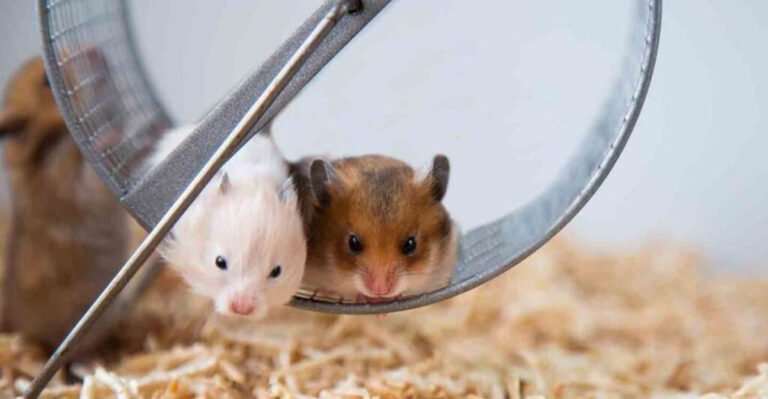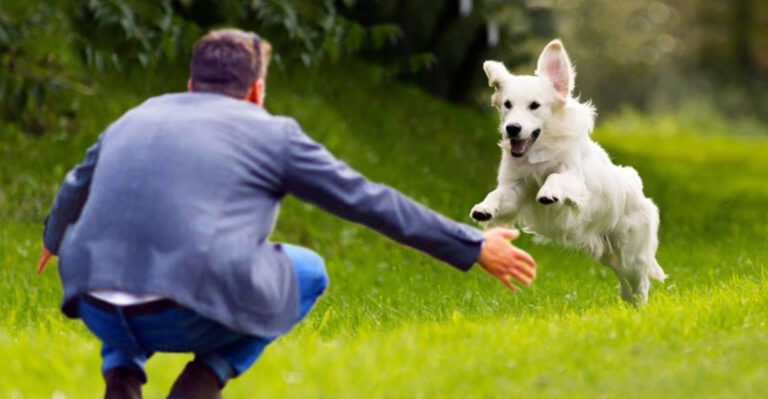6 Effective Ways To Rabbit-Proof Your Garden And 6 That Won’t Work
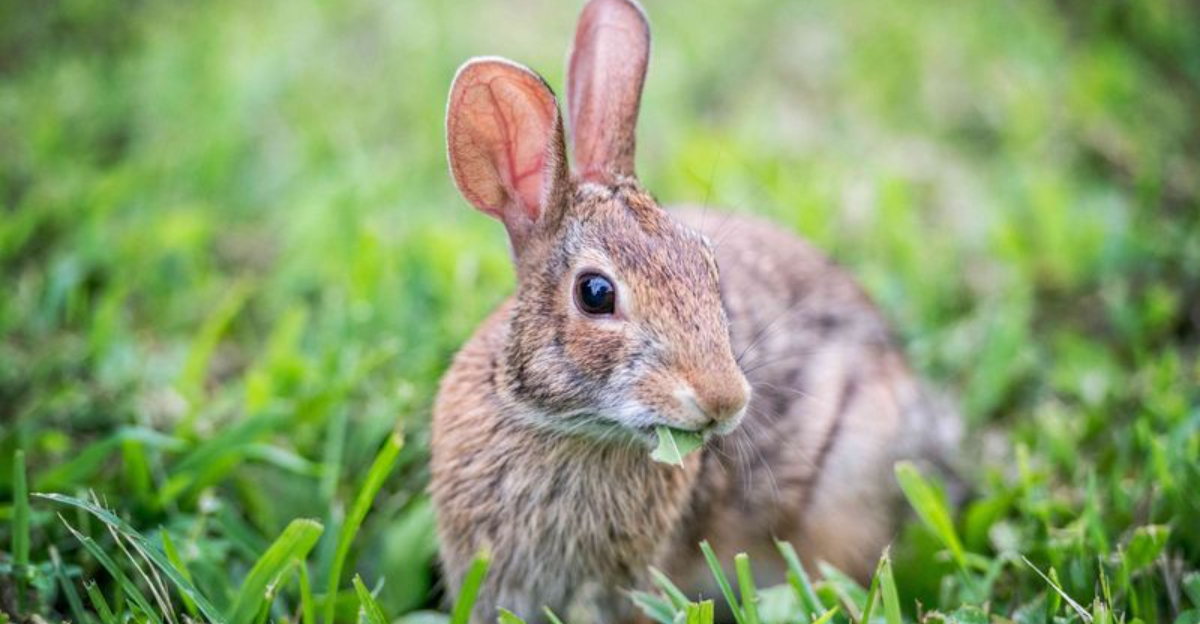
Those cute cotton-tailed visitors can transform your flourishing garden into their personal salad bar overnight!
Whether you’re growing vegetables or prized flowers, keeping rabbits out becomes a top priority when you notice those telltale nibble marks.
Let’s explore solutions that actually work – and save you time by skipping methods that look promising but ultimately fail.
1. Sturdy Chicken Wire Fencing
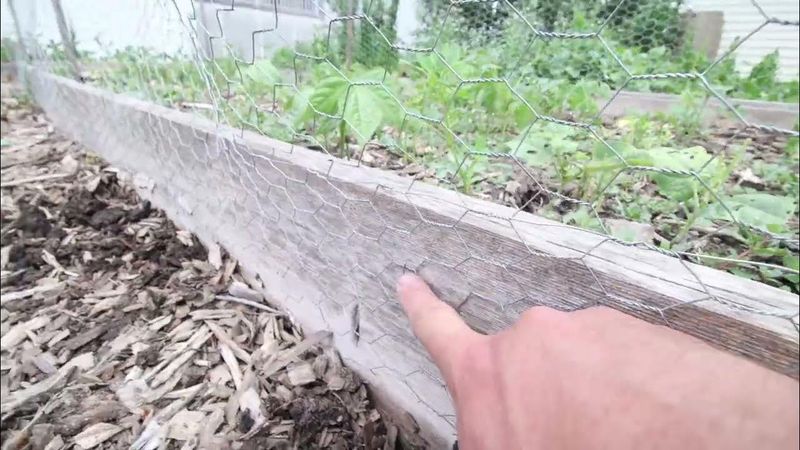
Forget flimsy barriers – chicken wire is your garden’s best defender. The tight mesh pattern prevents even baby bunnies from squeezing through.
Install it at least 2 feet high and bury 6-12 inches underground to prevent tunneling. Bend the bottom outward to create an L-shape that thwarts determined diggers.
2. Raised Garden Beds
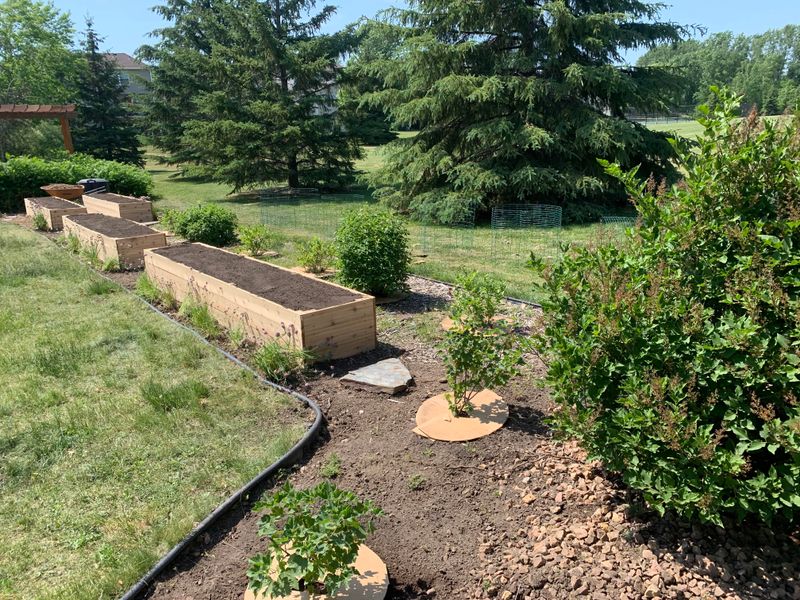
Elevated gardening creates a natural barrier rabbits hesitate to climb. Build beds at least 2 feet high using wood, metal, or stone materials.
The height discourages jumping while the structure’s sides prevent easy access. For extra protection, attach chicken wire around the bottom perimeter to block any adventurous bunnies.
3. Blood Meal Fertilizer
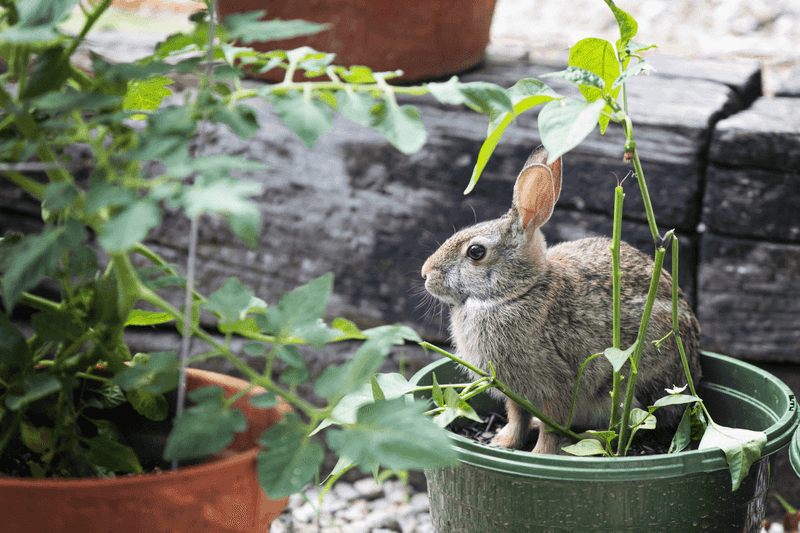
Nature’s warning signal works wonders! Blood meal’s strong scent triggers rabbits’ instinctual fear of predators, sending them hopping elsewhere.
Simply sprinkle it around garden borders and between plant rows after rain. Reapply every few weeks or after heavy rainfall for continuous protection that doubles as nitrogen-rich fertilizer.
4. Motion-Activated Sprinklers
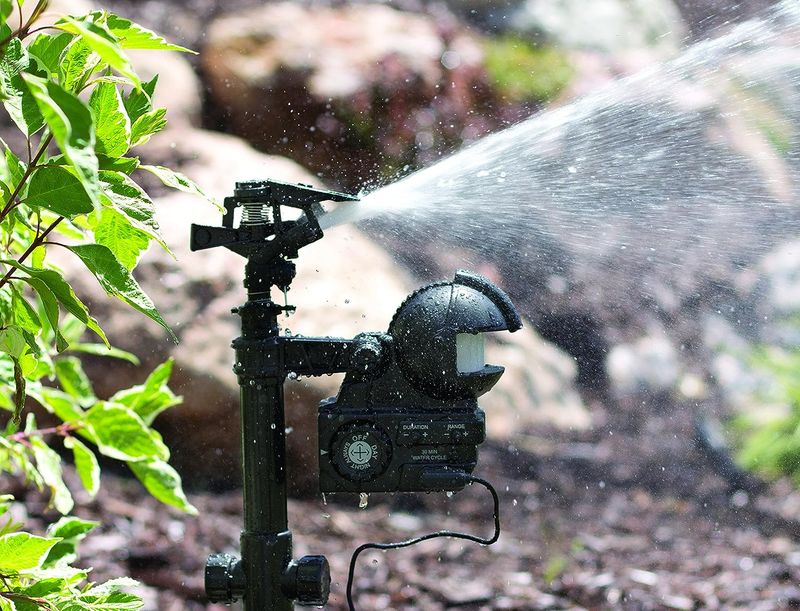
Surprise water blasts turn your garden into a no-fun zone for rabbits! These clever devices detect movement and shoot a harmless water spray that startles intruders.
Position them strategically around entry points where rabbits typically appear. The unexpected shower teaches bunnies your garden isn’t worth the wet fur – without harming them.
5. Companion Planting With Strong-Smelling Herbs
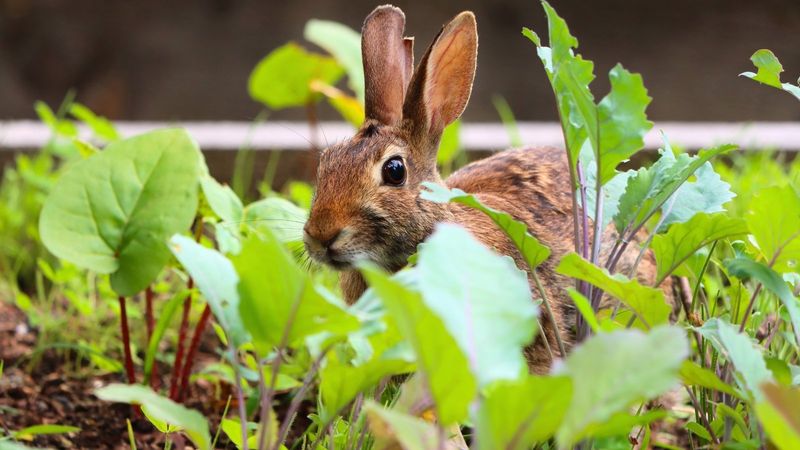
Strong aromas naturally confuse rabbit noses! Interplant your vegetables with pungent herbs like garlic, onions, mint, or marigolds.
The powerful scents mask the appetizing smell of your precious crops. Create a perimeter of these aromatic plants or scatter them throughout beds – rabbits will typically avoid areas where their sensitive noses are overwhelmed.
6. Commercial Rabbit Repellents
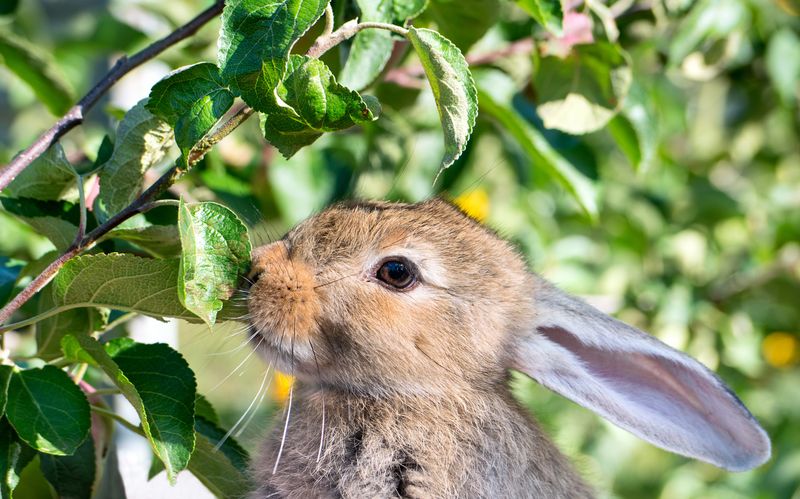
Ready-made solutions pack a powerful punch against persistent rabbit problems. Look for products containing predator urine or natural oils rabbits find offensive.
Apply according to package directions, typically every 30 days and after rain. Many modern formulations are safe around edible plants while creating an invisible barrier rabbits won’t cross.
7. Plastic Garden Ornaments
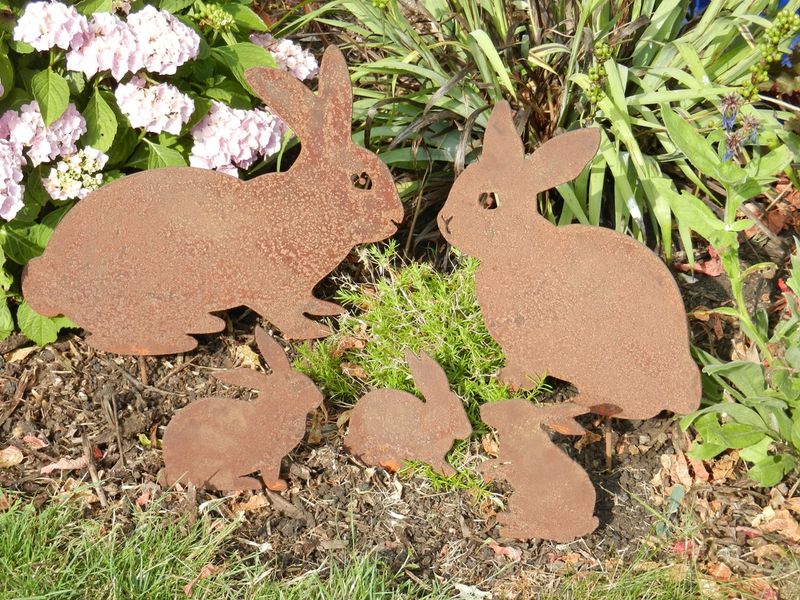
Those cute garden gnomes won’t scare away hungry bunnies! Plastic decorations might enhance your garden’s appearance but do nothing to deter rabbits.
Despite popular myths, rabbits quickly realize these motionless figures pose no threat. Save your money for actual solutions instead of these charming but ineffective decorations that rabbits simply hop around.
8. Ultrasonic Repellers
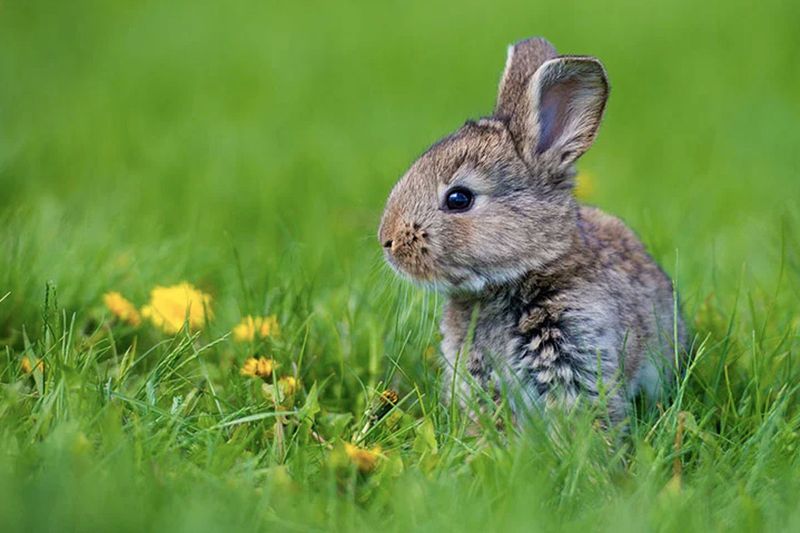
Sounds promising, looks sleek, does little! These battery-powered stakes emit high-frequency sounds supposedly unbearable to rabbits.
Scientific evidence shows minimal effectiveness against determined rabbits. Their range is limited, and many rabbits simply become accustomed to the noise. Garden obstacles and weather conditions further reduce their already questionable performance.
9. Human Hair Sprinkled Around Plants
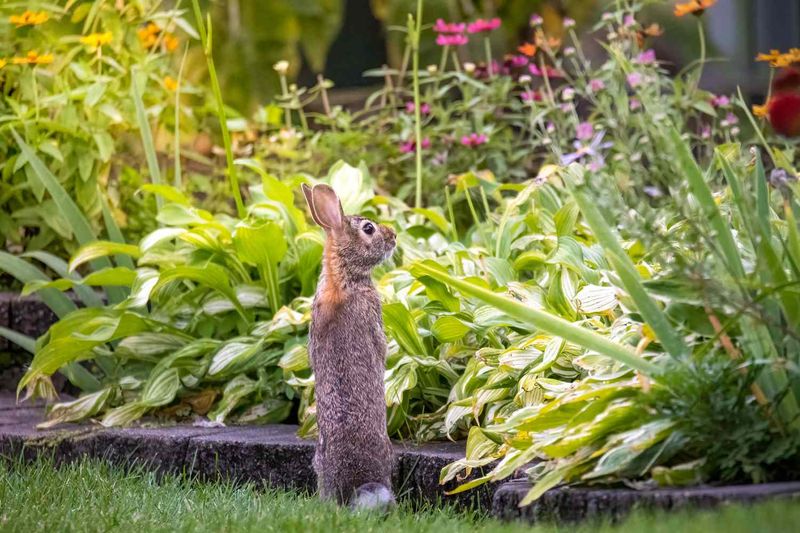
Grandma’s favorite trick falls flat in reality. The theory suggests human scent deters wildlife, but rabbits in suburban areas are already accustomed to human presence.
Hair quickly loses any repellent properties after rain or irrigation. It also looks unsightly scattered around your beautiful garden beds and can attract other unwanted pests looking for nesting material.
10. Irish Spring Soap Shavings
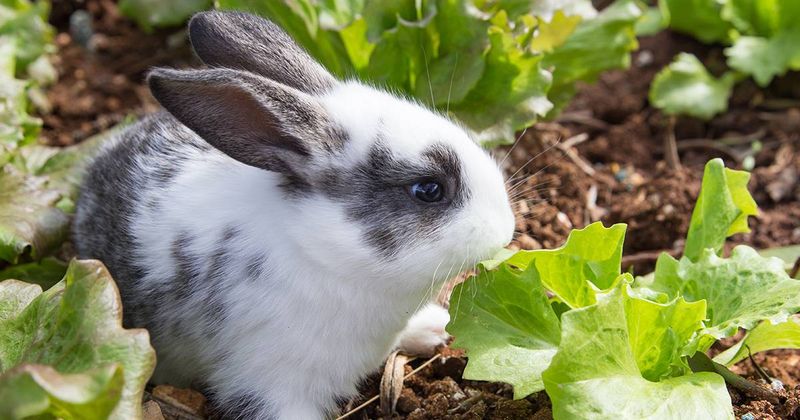
Fresh-scented but frustratingly ineffective! This popular internet hack suggests rabbits hate the soap’s strong fragrance.
While initially deterring some rabbits, the effect vanishes after rain or when the scent weakens. Rabbits quickly adapt and return to munching. Additionally, soap contains chemicals potentially harmful to plants and beneficial insects in your garden ecosystem.
11. Mothballs Around Garden Edges
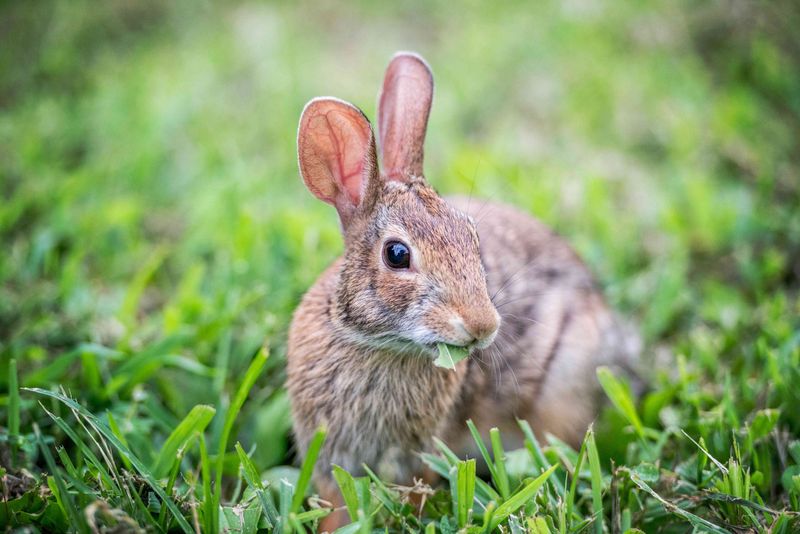
Dangerous and illegal for garden use! Mothballs contain naphthalene or paradichlorobenzene – toxic chemicals not approved for outdoor applications.
They pose serious health risks to children, pets, and beneficial wildlife. The Environmental Protection Agency strictly prohibits this use. Additionally, rain quickly dissolves them, releasing harmful chemicals into your soil and potentially contaminating edible crops.
12. Predator Decoys (Plastic Owls/Snakes)
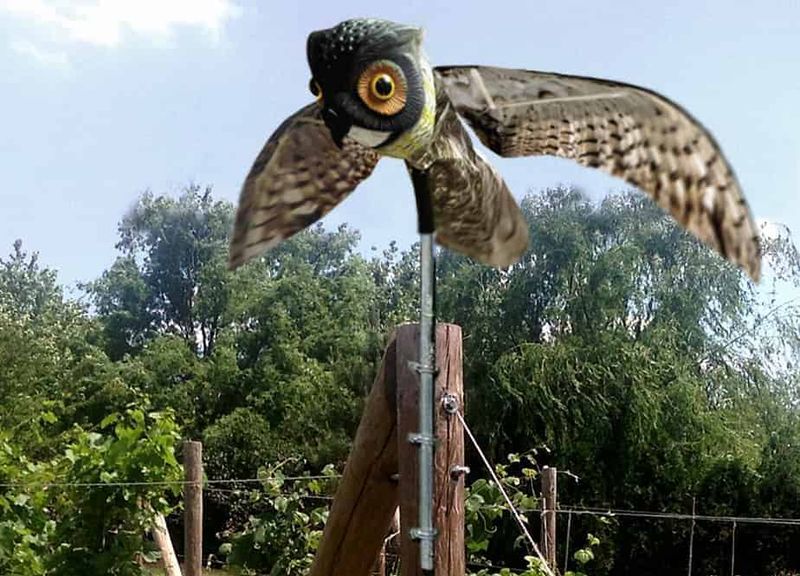
Stationary fake predators might work – for about a day! Rabbits quickly realize these motionless figures pose no actual threat.
Without regular movement or repositioning, rabbits learn to ignore them completely. Even models with bobbing heads or reflective eyes lose effectiveness as rabbits observe them remaining in the same location day after day without ever attacking.

